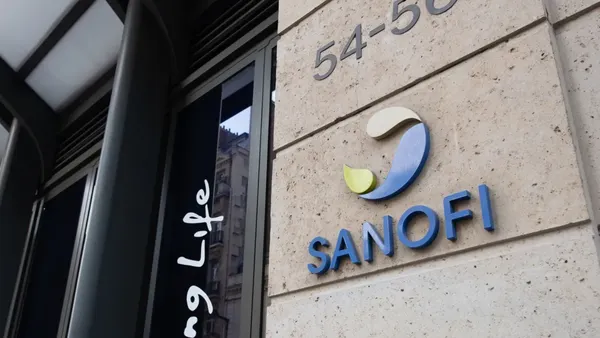Dive Brief:
- Merck & Co. may be able to expand use of its kidney cancer drug Welireg after it hit the main goal in two Phase 3 trials in people with less-advanced disease.
- In one trial, adding Welireg to Merck’s immunotherapy Keytruda following the surgical removal of cancerous tissue kept people disease-free longer than Keytruda alone. In the other, a combination of Welireg and Eisai’s Lenvima helped delay progression better than Exelixis’ Cabometyx in people who relapsed after treatment with Keytruda.
- Study success in the post-surgical “adjuvant” setting could prove especially lucrative for Merck, potentially nearly tripling expected revenue in that line of care to more than $6 billion, Leerink Partners analyst Daina Graybosch wrote in a note to clients.
Dive Insight:
Welireg is one of the newer drugs Merck is focusing on to sustain growth once Keytruda’s main patent expires in 2028. The drug, a pill that blocks a protein called HIF-2 alpha, was acquired in a 2019 buyout and gained its first approval two years later to treat tumors related to a rare genetic condition called von Hippel-Lindau disease. It’s added clearances in kidney cancer and rare adrenal tumors since.
In kidney cancer, Welireg can currently be prescribed for people who’ve been treated with an immunotherapy like Keytruda or Bristol Myers Squibb’s Opdivo in combination with a type of targeted drug like Cabometyx. Under its current label, Welireg had sales of $300 million through the first six months of 2025.
In the adjuvant setting, Merck said the Welireg-Keytruda combination given over 54 weeks “demonstrated a statistically significant and clinically meaningful improvement” in disease-free survival when compared to Keytruda and a placebo, but didn’t provide details. Merck will continue to follow trial enrollees to determine whether the combination helped them live longer than Keytruda alone.
Should Welireg win clearance as an adjuvant treatment and be adopted by physicians, it should “become a substantial revenue contributor” for Merck, Leerink’s Graybosch wrote. The $30,000-a-month list price of Welireg is twice that of Keytruda, Graybosch noted, and a 54-week treatment course in adjuvant kidney cancer would provide Merck with a substantial boost.
The other study, which tested Welireg with Lenvima in the second-line setting, also delivered a “statistically significant and clinically meaningful improvement” in progression free survival over Cabometyx. The combination hasn’t yet clearly extended survival, however. Merck will continue to assess its impact with longer follow-up.
In her client note, Graybosch speculated that Lenvima’s higher side effect burden of Lenvima might be negatively impacting patient survival, which could affect a future FDA review.
Arcus Biosciences, meanwhile, has a drug called casdatifan that’s similar to Welireg. It’s currently in Phase 3 trials evaluating use alongside Cabometyx and as well as combination immunotherapy.
“We continue to be highly enthusiastic about the outlook for casdatifan following these successes from Merck ... given our confidence that casdatifan has a best-in-class profile,” Graybosch wrote.













